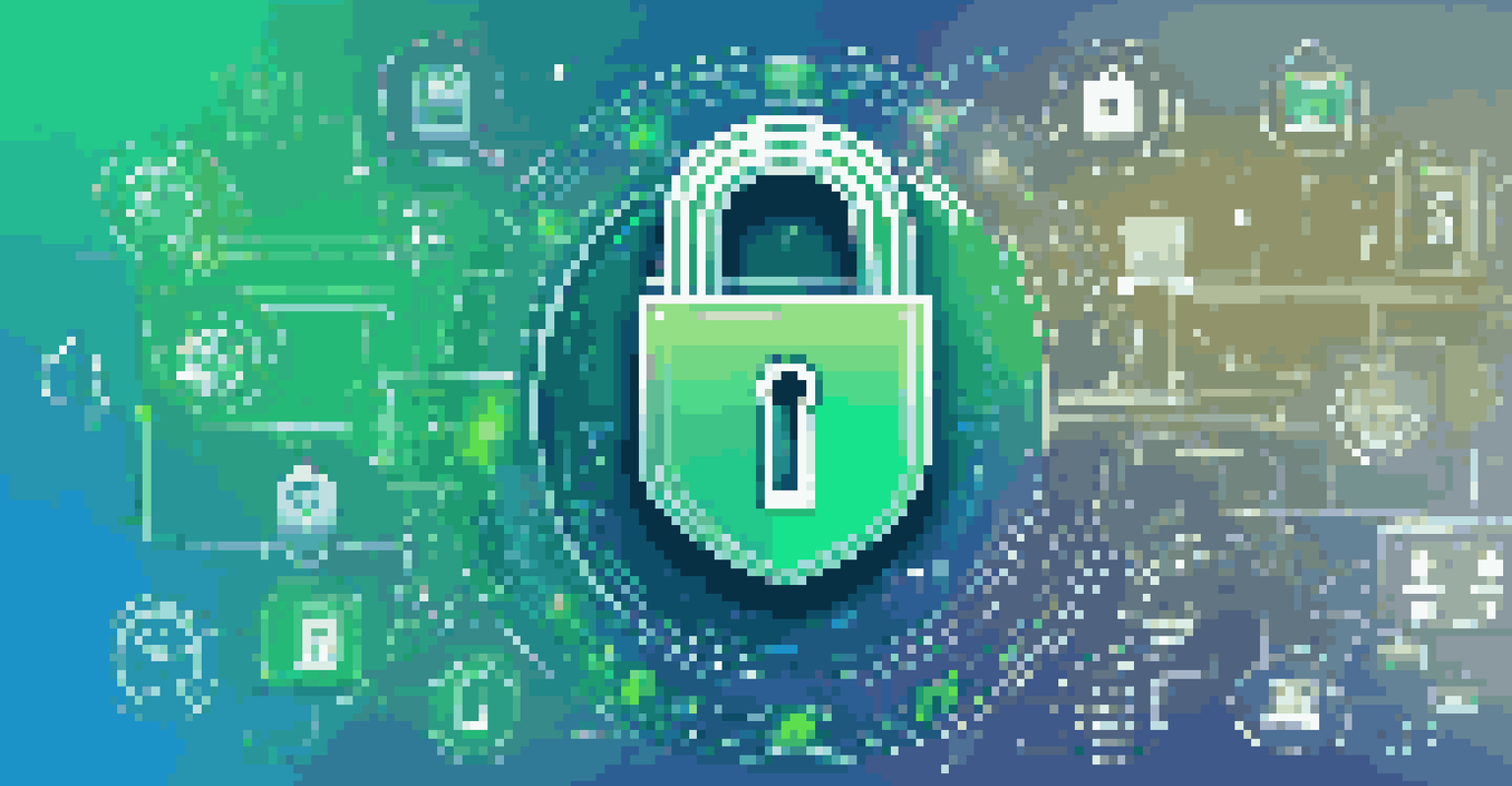Evaluating Cloud Security Solutions: Key Considerations

Understanding the Importance of Cloud Security Evaluation
In today's digital landscape, cloud security is more crucial than ever. As businesses migrate to the cloud, they face new vulnerabilities that can threaten sensitive data. Evaluating cloud security solutions ensures that your organization can protect its assets and comply with regulations. This process not only safeguards your information but also builds customer trust.
In today's interconnected world, security is not just a technical issue; it's a business imperative.
With a myriad of cloud service providers available, choosing the right security solution can feel overwhelming. Each provider offers different features, making it essential to understand what you need to prioritize. Focusing on your organization's specific requirements streamlines the evaluation process and helps identify the most suitable options.
Furthermore, the stakes are high—breaches can lead to financial losses and reputational damage. By taking the time to evaluate your cloud security solutions thoroughly, you are investing in the long-term safety and success of your business.
Assessing Compliance with Industry Standards
Compliance with industry standards is a non-negotiable aspect of cloud security. Regulations like GDPR, HIPAA, and PCI-DSS outline specific requirements that organizations must follow to protect data. Evaluating cloud security solutions involves ensuring that your provider adheres to these standards, which can save you from potential legal issues.

Moreover, compliance is not just about avoiding penalties; it's also about establishing credibility. Customers are more likely to trust businesses that demonstrate a commitment to upholding security and privacy standards. Thus, when assessing cloud security solutions, ask potential providers about their compliance certifications and audit processes.
Prioritize Cloud Security Evaluation
Evaluating cloud security solutions is crucial for protecting sensitive data and maintaining customer trust.
Incorporating compliance checks into your evaluation process helps create a solid foundation for your cloud security strategy. This proactive approach not only mitigates risks but also enhances overall data governance.
Evaluating Security Features and Capabilities
When evaluating cloud security solutions, it's vital to consider the specific security features offered by each provider. Look for essential capabilities like encryption, multi-factor authentication, and threat detection systems. These features serve as your first line of defense against cyberattacks, making them critical to your selection process.
Compliance is not about avoiding penalties; it's about doing the right thing.
Additionally, it’s important to understand how these features integrate within the broader security framework of your organization. For example, a solution that offers robust encryption but lacks effective access controls may not provide comprehensive protection. Therefore, assess how well potential solutions complement your existing security measures.
Lastly, keep an eye out for innovative security technologies like AI and machine learning, which can enhance threat detection and response times. By prioritizing advanced security features, you can better prepare your organization for evolving cyber threats.
Understanding Data Ownership and Privacy Policies
Data ownership is a critical consideration when evaluating cloud security solutions. Organizations must clarify who owns the data stored in the cloud, as this can affect control and liability. Ensure that your provider's policies clearly define data ownership to avoid potential disputes down the line.
In tandem with ownership, understanding privacy policies is essential for protecting sensitive information. Familiarize yourself with how your provider handles data processing, storage, and sharing. A transparent privacy policy can significantly ease concerns about data misuse or unauthorized access.
Ensure Compliance with Standards
Adhering to industry regulations like GDPR and HIPAA is essential for safeguarding data and building credibility.
Moreover, consider how data is treated in the event of service termination. Knowing your rights regarding data retrieval and deletion can help you maintain control over your information, ensuring compliance with legal obligations.
Evaluating Incident Response and Recovery Plans
An effective incident response plan is vital for minimizing damage in the event of a security breach. When evaluating cloud security solutions, inquire about the provider's incident response strategy. Providers should be able to demonstrate their ability to quickly identify, respond to, and recover from security incidents.
It's equally important to assess how the provider communicates during a security incident. Clear communication can help your organization make informed decisions and mitigate risks effectively. Ask about their notification policies and how they keep clients informed throughout the recovery process.
Finally, evaluate the provider's disaster recovery plans. A robust recovery strategy ensures that your data can be restored quickly, minimizing downtime and maintaining business continuity. By thoroughly assessing these plans, you can ensure that your cloud security solution is equipped to handle potential crises.
Evaluating Cost vs. Value of Cloud Security Solutions
Cost is often a significant factor in decision-making, but it's essential to weigh it against the value of a security solution. A cheaper option may save money upfront but could lead to higher costs down the line due to security breaches or compliance fines. Therefore, consider the long-term value that each solution brings to your organization.
When evaluating costs, take into account not just the subscription fees but also the potential expenses related to data breaches, downtime, and recovery efforts. A comprehensive analysis will help you understand the true cost of ownership and guide you toward a solution that offers the best return on investment.
Assess Costs vs. Value
Balancing the cost of security solutions against their long-term value can prevent financial loss from breaches.
Additionally, look for any hidden costs associated with implementation, training, or upgrades. Being transparent about these factors will allow you to make a more informed decision that aligns with both your budget and your security needs.
Gathering Feedback and Reviews from Existing Users
One of the best ways to evaluate cloud security solutions is to gather feedback from existing users. Reviews and testimonials can provide valuable insights into how well a solution performs in real-world scenarios. Seek out user experiences related to security, support, and overall satisfaction to inform your evaluation.
Additionally, consider joining industry forums or discussion groups where professionals share their experiences with various providers. These platforms can offer candid opinions that you might not find in formal reviews, helping you gain a more rounded perspective.

Finally, don’t hesitate to reach out to existing customers of potential providers. Asking specific questions about their experiences can uncover strengths and weaknesses that aren't immediately apparent, ensuring you choose a solution that best fits your needs.